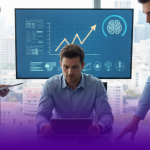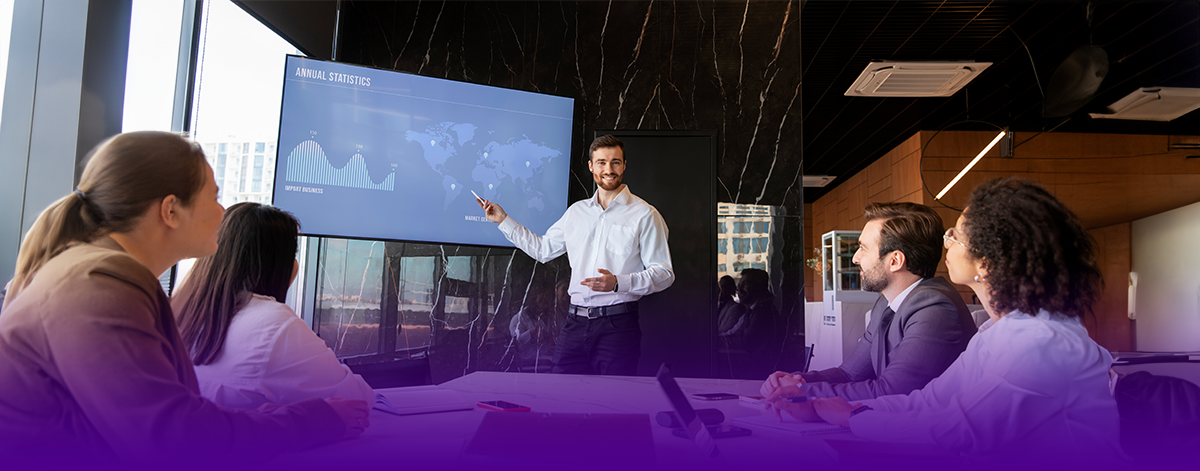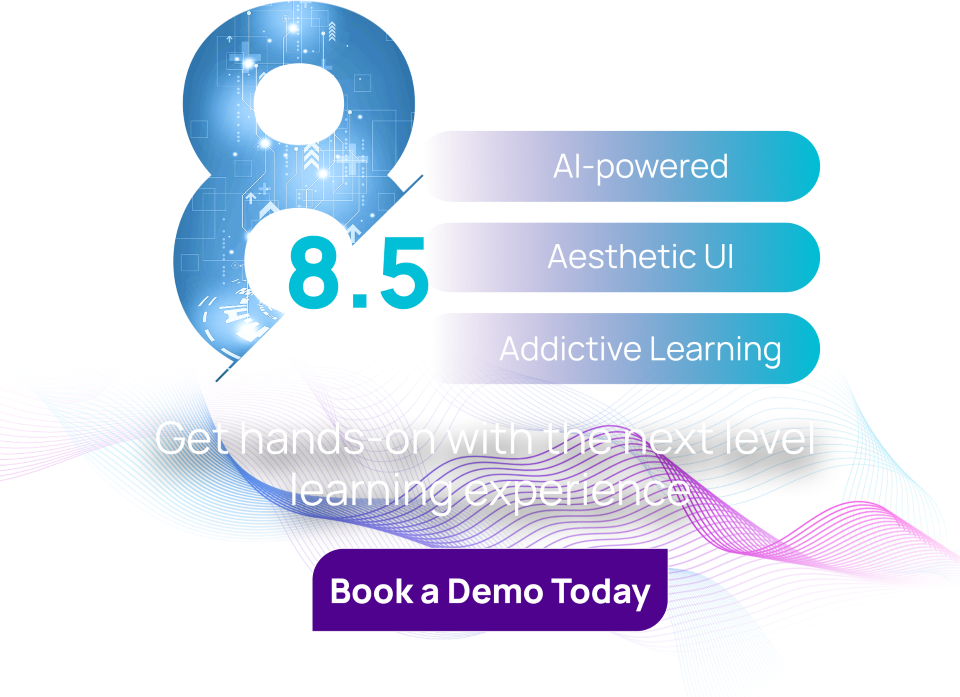
With Corporate Training for Employees: LMS Solutions That Work
November 21, 2025
LMS for Onboarding: Simplifying New Hire Training
November 21, 2025In healthcare, learning is a matter of life and quality care; beyond just career development. With new medical technologies, evolving treatment protocols, and ever-changing compliance regulations, healthcare professionals need a way to learn continuously and efficiently.
A Healthcare LMS (Learning Management System) is a platform that simplifies, automates, and personalizes this training requirement for the medical workforce.
From tracking certifications to providing real-time compliance alerts, from simulating clinical situations to extending training beyond hospital walls, a Healthcare LMS is transforming medical training and the delivery of care.
What Is a Healthcare LMS?
A Healthcare LMS is a digital learning platform built specifically for hospitals, clinics, and medical institutions. It helps organizations create, manage, and deliver training programs for staff, contractors, and partner networks within a centralized, secure environment.
A medical training LMS is purpose-built for healthcare. It addresses the unique requirements of this industry, such as compliance management, medical competencies, and data protection, while ensuring every learner stays up to date and ready to perform.
Why Healthcare Needs a Learning Management System
Training in healthcare is complex. Staff schedules are unpredictable, regulatory requirements are stringent, and patient outcomes depend on consistent learning. Challenges like the following make it hard for hospitals to rely on conventional classroom training:
- Constant compliance renewals (HIPAA, OSHA, FDA, and more)
- Frequent onboarding due to high turnover
- Rapidly evolving medical technologies and treatments
- Diverse learning needs across doctors, nurses, technicians, and administrative staff
A Healthcare LMS addresses all of these issues by offering flexibility, automation, and insight, creating a proactive learning culture.
Key Features of a Healthcare LMS
Let’s look at the specific LMS product features that make healthcare training smarter, more compliant, and performance-driven:
- Strong Compliance Management with Nudges and Alerts
In healthcare, compliance isn’t optional; it’s critical. Thus, a compliance healthcare LMS ensures that every employee, from doctors to data entry staff, meets the required regulatory standards.
Advanced compliance modules offer:
- Automated assignment of mandatory courses (like HIPAA or patient safety)
- Real-time tracking of certifications and renewal dates
- Smart nudges and alerts that notify learners before certifications expire
- Admin dashboards that highlight non-compliance risks instantly
These proactive alerts keep everyone accountable, helping both learners and administrators stay audit-ready at all times.
Example: If a nurse’s infection control certification is nearing expiration, both she and her supervisor get an alert, ensuring timely completion without manual tracking.
2. Role-Based Learning Paths for Personalized Training
Every role in healthcare demands specialized knowledge. A Healthcare LMS thus enables role-based learning paths, ensuring that training is personalized and relevant.
- Nurses can focus on patient care, medication administration, and infection control.
- Technicians can receive training on equipment operation and calibration.
- Administrative staff can learn about patient data privacy and records management.
This personalized approach not only saves time but also makes training more meaningful and directly applicable to daily responsibilities.
3. Microlearning and Mobile Access for On-The-Go Learning
Healthcare professionals work around the clock, often with unpredictable schedules. A healthcare eLearning software offers mobile-ready microlearning, short, engaging lessons that can be completed on a phone or tablet, between shifts or during breaks.
4. This enhances learning flexibility and ensures that critical updates and refresher modules are never missed. Simulation and Scenario-Based Learning for Realistic Practice.
Clinical competence comes from practice, but not all learning can happen involving live patients. That’s where simulation-based learning inside the LMS makes a difference. Learners can experience real-world medical scenarios, emergency response simulations, and interactive case studies in a safe digital environment.
This builds confidence, critical thinking, and decision-making skills, essential in life-critical situations.
5. Multitenancy: Custom Learning for Multiple Groups
Large healthcare systems often manage multiple hospitals, departments, or partner institutions. A multitenant Healthcare LMS enables organizations to create distinct learning portals within a single platform.
Each group (for example, a regional branch or a specialized department) can have its own branding, learning paths, and content, while administrators still manage everything centrally.
This ensures consistency across the organization while allowing flexibility for localized training needs.
6. Extended Enterprise: Reaching Beyond the Core Workforce
Training in healthcare isn’t limited to internal employees anymore. An extended enterprise Healthcare LMS lets organizations deliver training to external stakeholders such as pharmaceutical sales reps, suppliers, vendors, or partner hospitals.
This is especially powerful for maintaining consistent quality and compliance across the entire healthcare ecosystem.
Example: A medical equipment manufacturer can train its distributors and service engineers using the same compliance-driven learning platform internally.
7. Powerful Data Gathering and Reporting
Healthcare is data-driven, and so is effective learning. Modern Healthcare LMS platforms come with advanced analytics and reporting tools that consolidate all compliance and competency data in one place.
They provide:
- Comprehensive dashboards to track learner progress
- Skill-gap identification across departments
- Automatic compliance reports for audits
- Correlation of learning outcomes with performance metrics
This eliminates the need to switch between multiple systems for tracking learning, ensuring one unified view of training effectiveness and compliance.
8. Blended Learning for Holistic Development
Healthcare training often combines theory with hands-on practice. A Healthcare LMS supports this blended learning by synthesizing online modules, classroom sessions, and workshops into a seamless experience.
Administrators can schedule instructor-led sessions, track attendance, and manage assessments from the same platform. It’s a comprehensive approach to mastering both digital and practical skills.
9. Integration with Hospital Systems
The best LMS platforms integrate effortlessly with hospital HR systems, credentialing databases, and even EHR (Electronic Health Records) systems.
This ensures that training records, job roles, and certification updates are automatically synced, reducing administrative workload and preventing manual data errors.
10. Security and Scalability
A healthcare learning platform must prioritize data security. With built-in HIPAA compliance, role-based permissions, and end-to-end encryption, a robust LMS safeguards sensitive learner and patient data while scaling easily across facilities and geographies.
How a Healthcare LMS Improves Medical Training
The impact of a Healthcare LMS extends far beyond digital convenience. It transforms the way medical professionals learn and organizations operate via:
- Improved patient outcomes: Better-trained professionals make fewer errors and deliver safer care.
- Reduced compliance risks: Automated alerts and certification tracking ensure everyone remains compliant.
- Higher efficiency: Digital courses reduce travel, scheduling conflicts, and manual paperwork.
- Engaged workforce: Gamified modules and microlearning keep learners motivated and informed.
- Scalable growth: Multitenancy and extended enterprise features support large, distributed healthcare networks.
A Step Toward Smarter, Safer Healthcare
A Healthcare LMS is a digital tool that’s leading the workforce towards more innovative, safer, and more connected learning in the medical field. It enables organizations to build a culture of continuous growth, accountability, and excellence.
A Healthcare LMS ensures that every healthcare professional is aligned with the latest standards, technologies, and best practices. And ultimately, that’s what healthcare is all about: empowering people to care better, perform better, and save lives.
Over to You
As healthcare continues to evolve, training must evolve too. We’ve seen how a well-designed Healthcare LMS bridges the gap between compliance, competency, and care. But the journey looks different for every organization. So:
- How are you currently managing training and compliance across your teams?
- What do you expect from a modern LMS that could make your life easier: automation, engagement, and/or deeper reporting?
We’d love to hear your experiences, challenges, and expectations. Every insight brings us closer to creating learning systems that truly support the people who care for us all.
Other Articles




